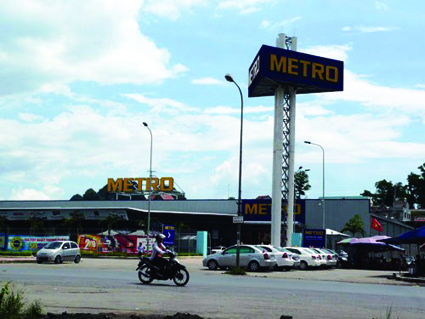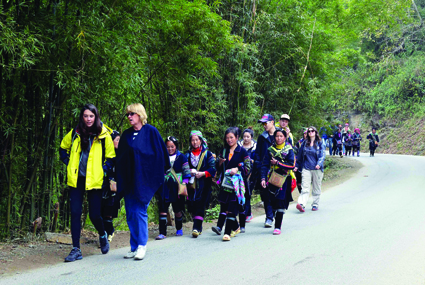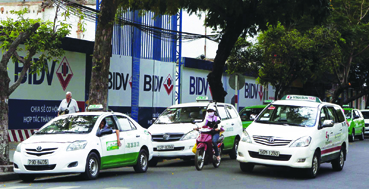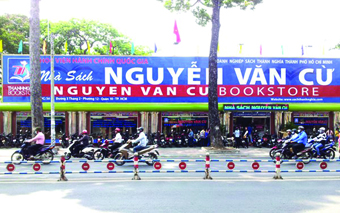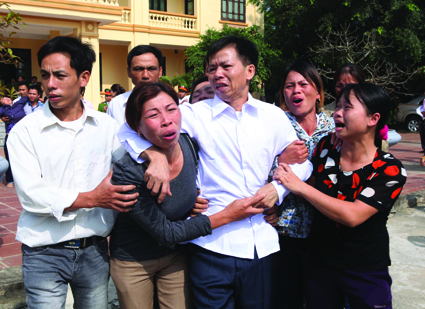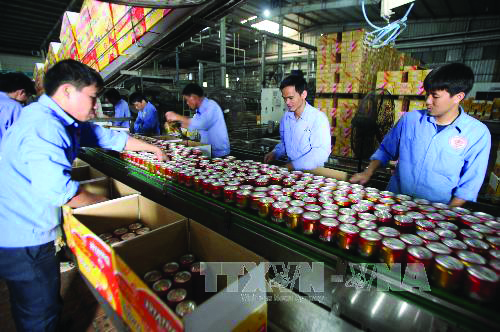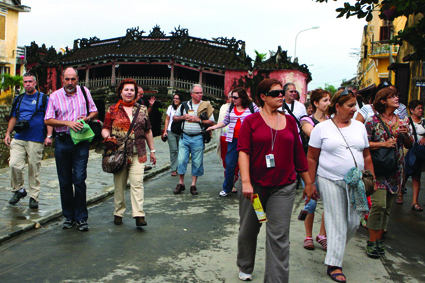For the first time in the country’s lawmaking history, a law is likely to be revised before it comes into force as the Government is set to propose the National Assembly to amend the Social Insurance Law with effect from next year.
The proposal to allow workers to choose between receiving lump sum insurance payouts and accumulating their insurance payment periods to enjoy monthly pensions later will be put forward at the National Assembly sitting next month amid workers’ protests over a new rule of the revised Social Insurance Law which narrows down the number of workers eligible to get insurance lump sums when quitting their jobs.
The Government made such a quick decision at the cabinet meeting early this month after considering proposals of the Ministry of Labor, War Invalids and Social Affairs, the Vietnam General Confederation of Labor and Ho Chi Minh City People’s Committee.
According to Government Office Chairman Nguyen Van Nen, Article 60 of the revised Social Insurance Law was a step forward to ensuring long-term benefits for workers, but it was not unanimously agreed by employees, firstly workers in Ho Chi Minh City. Considering the request of these workers legitimate, the Government would propose the National Assembly to allow workers to get lump sum insurance payouts if they are not yet eligible to receive pensions.
Dang Ngoc Tung, President of the Vietnam General Confederation of Labor, said the proposal suited the current reality and better ensured employees’ benefits.
The current social insurance law allows workers who pay monthly social insurance premiums to receive lump sum payouts after one year of unemployment. But under the new one which was passed by the National Assembly last year and will take effect on January 1, 2016, most workers cannot receive insurance payments until they reach retirement age, which is 60 for men and 55 for women.
The new rule drew negative responses from workers which culminated in a massive work stoppage at Taiwanese shoe maker Pou Yuen in Ho Chi Minh City’s Tan Tao industrial park.
For nearly a week in late March, tens of thousands of Pou Yuen workers went on a work stoppage to show their discontent with the new social insurance policy which they said was impractical as they could not work until retirement age. Many workers said they came from rural areas and planned to work in big cities for only several years to get some money before returning to their villages. They wanted to get insurance lump sums to meet their immediate daily-life needs and start up new businesses.
The largest- and longest-ever work stoppage in the country prompting the Government’s proposed revision to the new rule revealed limitations in the process of law making and dissemination, experts said.
Although the new law was meant to offer workers more benefits and ensure long-term security as compared with current regulations, poor communication had resulted in the workers’ negative reactions.
The policy to restrict lump sum payments was designed to ensure social security for workers in the long run by expanding social insurance buyers, said Bui Sy Loi, Vice Chairman of the National Assembly’s Social Affairs Committee, pointing out from 2007 to 2012, 80% of persons entitled to social insurance payment received lump sums and only 20% received monthly pensions. Annually, nearly 500,000 received lump sum payouts and this number tended to increase from year to year, Loi said.
He said the new policy offered better and long-term benefits for workers. In reality, he said, after receiving insurance lump sums, many workers had expressed a wish to return the money to the Social Insurance Fund and continue paying insurance premiums so that they can have monthly pensions when they retire, but the law did not allow retroactive action.
Deputy Minister of Labor, War Invalids and Social Affairs Doan Mau Diep said Article 60 was aimed at encouraging workers to reserve and accumulate their social insurance payment periods to enjoy pensions, ensuring a stable life for them in old age.
He said although the new law narrowed down the scope of entitlement to lump sum payments, it opened up opportunities for workers to continue buying social insurance when they were unemployed and retain their payment periods which would be counted when they found new jobs for accumulation to receive pensions later.
As compared with the current one, the official said, the new rule offered more benefits for workers in case they became unemployed, including unemployment insurance money, vocational training support, job counseling and placement. It also added different options for social insurance buyers. In case a worker dies before he reaches retirement age, his relatives are entitled to a funeral allowance equal to at least 10 months of the minimum salary. If he has paid social insurance premiums for full 15 years, his relatives can also receive a survivor allowance either in a lump sum or on a monthly basis. A worker who has not paid insurance premiums for the required period in order to receive pensions can also pay insurance premiums in a lump sum to immediately enjoy monthly pensions.
The deputy minister said workers’ reactions possibly stemmed from their lack of understanding about the new rule because legal dissemination work remained unsatisfactory, just repeating regulations without explaining them.
The new insurance policy failing to meet the aspiration of workers also revealed limitations in the lawmaking process which required consultation with affected groups, the official said.
Although in the process of making the new rule, workers were consulted through meetings and seminars with grassroots trade unions and field surveys in localities and at enterprises, such consultations failed to cover employees in different localities and industries, given the country now had over 500,000 businesses, Diep admitted, saying the workers’ protest meant that any policies should be designed in a flexible manner to accommodate particular circumstances. As in this case, there must be different options for workers when they quit their jobs rather than sticking to the only option of receiving payments at the age of retirement.
In fact, the Vietnam General Confederation of Labor had sent its recommendations to reserve the lump-sum social insurance payment option to the law drafting committee in November 2013, President Dang Ngoc Tung told the Tuoi Tre (Youth) online. It was the Confederation’s fault as it failed to speak out its opinions before the National Assembly, given the drafting committee’s determination to provide long-term social insurance policy for most employees. Yet, affected by the policy were workers so they should be the ones having the right to choose what was best for them, Tung said.
Vice Chairman Loi also agreed workers’ wish to receive lump sum payouts to meet their immediate needs was reasonable, given the fact that the region-based current minimum salary only met around 70% of workers’ basic living needs.
The Ministry of Labor, War Invalids and Social Affairs was currently drafting implementing regulations of the new Social Insurance Law which would surely take into account the workers’ recent concerns, Deputy Minister Diep said, adding that these regulations would also identify target groups of workers entitled to government support in buying social insurance on a voluntary basis.- (VLLF)
| Article 60 of the 2014 Social Insurance Law ... 1. Employees defined in Clause 1, Article 2 of this Law are entitled to a lump-sum social insurance allowance upon their request when falling in one of the following cases: a/ They have reached the retirement age specified in Clause 1, 2 or 4, Article 54 of this Law but have paid social insurance premiums for under full 20 years, or the age specified in Clause 3, Article 54 of this Law but have paid social insurance premiums for under full 15 years and do not continue paying voluntary social insurance premiums; b/ They settle abroad; c/ They get a fatal disease, such as cancer, poliomyelitis, dropsy cirrhosis, leprosy, serious tuberculosis, or HIV infection progressing into AIDS, or other diseases as prescribed by the Ministry of Health; d/ Employees defined at Points dd and e, Clause 1, Article 2 of this Law who are demobilized or cease working without being eligible for pension... |
